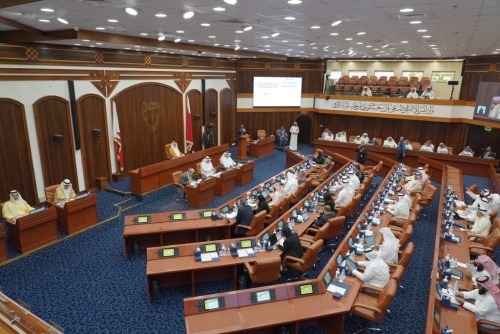Bahrain MPs endorse debt reduction strategy
TDT | Manama
The Daily Tribune – www.newsofbahrain.com
Yesterday marked a significant milestone of Bahrain in the economic deliberations of the House of Representatives, as they greenlit a crucial recommendation put forth by the Financial Committee.
The proposal, endorsed by a bipartisan group of five representatives, spearheaded by Jaleela Al Sayed, Mohsen Al Asboul, Mohammed Rafai, Ahmed Qarata, and Hisham Al Asheeri, urges the government to formulate a comprehensive strategy aimed at slashing the public debt to its lowest conceivable level.
This move is strategically aligned with capitalising on the surplus funds generated by the recent upswing in oil prices. The heart of the proposal lies in harnessing the surpluses arising from the differences between the budgeted and actual prices per barrel of oil.
This strategy, the representatives argue, demands a thoughtful and pragmatic approach, emphasising the imperative nature of tapping into these financial windfalls. In a statement echoing the sentiments of the proposal, MP Jaleela Al Sayed underscored the urgency of establishing a dedicated public debt management administration.
She stressed that this is particularly critical during a period when oil prices are scaling unprecedented heights, resulting in substantial surpluses that surpass the initially budgeted figures.
Al Sayed elucidated, “The anticipated surge in crude oil prices is poised to bring energy producers in the Middle East, Bahrain included, to a point of financial equilibrium, if not beyond. As a consequence, substantial budget surpluses are on the horizon, making it imperative to curtail public debt.
This is not just a fiscal responsibility but also a crucial alignment between the government and the representatives, forming an integral part of the government’s action plan.”
Increased borrowing
The proposal sheds light on the historical trend of increased borrowing during periods of depressed oil prices in preceding years. It underscores the need for bold, pre-emptive measures to shield the economy during such challenging times.
Today, as oil prices ascend and maintain stability over extended periods, the proposal asserts the necessity of addressing the repayment of those loans, forming a vital aspect of the economic roadmap.
As the House of Representatives rallies behind this forward-looking proposal, the nation awaits the government’s response and the subsequent steps that will shape the economic landscape in the wake of burgeoning oil prices.
Related Posts

